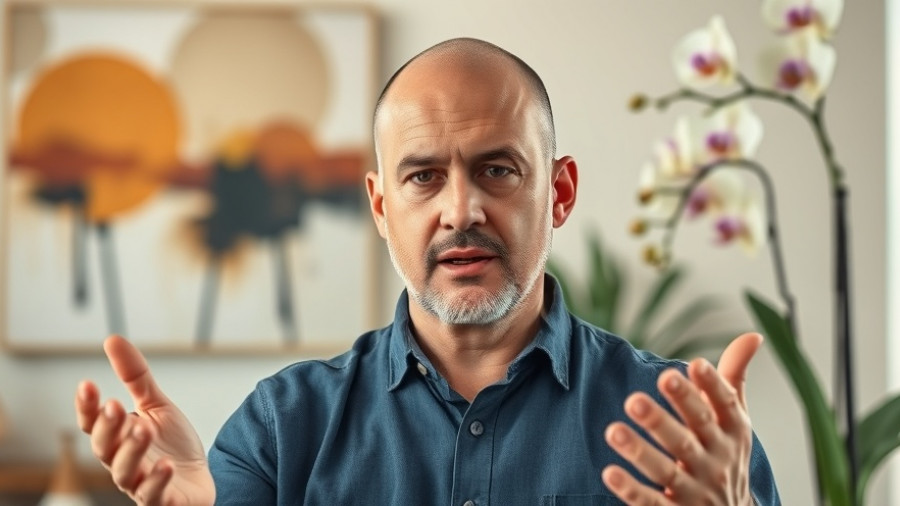
The Fight Response: A Deep-Dive into a Common Mental State
In our lives, we often encounter various stressors that prompt us to react instinctively. Among these reactions, the "fight response" stands out as a powerful, yet often misunderstood aspect of our emotional health. Many professionals can relate to feelings of being "stuck in the fight response," a condition where we feel perpetually on edge, ready to confront challenges, yet unable to find a way to disengage. This article explores the nuances of the fight response and offers insights into coping strategies and well-being interventions.
In 'Stuck in the Fight Response,' the discussion dives into the complexities of our instinctual reactions to stress. We’re breaking down its key ideas while adding our own perspective.
Understanding the Fight Response
The fight response is part of our body's natural defense mechanism, originating from our ancestors as they faced life-threatening dangers. When individuals encounter stress, their bodies go into a state of heightened alertness leading to reactions that can feel overwhelming and exhausting. For many professionals, whether in fast-paced work environments or high-pressure scenarios, this state can translate into anxiety, stress, and even burnout.
Recognizing when you're in "fight mode" is crucial for managing emotional health effectively. It allows individuals to develop healthier responses, paving the way to emotional regulation, and ultimately leading to productive outcomes. By identifying triggers—be it work deadlines, interpersonal conflicts, or personal challenges—individuals can start to explore coping strategies.
Mindfulness: Taming the Fight Response
Practicing mindfulness is a powerful tool that can help professionals manage stress and anxiety, countering the inherent rush of the fight response. Mindfulness encourages individuals to stay present in the moment, observe their thoughts and feelings without judgment, and find a sense of peace amidst chaos. Techniques such as deep breathing exercises, guided meditations, and grounding techniques can enable professionals to pause and reassess their reactions, ultimately allowing them to respond instead of react.
Therapies for Healing: Enhancing Emotional Resilience
For those struggling to navigate their fight response, therapy can serve as a lifeline. Approaches like Cognitive Behavioral Therapy (CBT), Dialectical Behavior Therapy (DBT), and Acceptance and Commitment Therapy (ACT) provide essential frameworks for understanding emotional triggers, developing coping strategies, and improving mental wellness. Therapy offers a confidential space where individuals can process their emotions, build resilience, and create healthier patterns.
In addition to traditional therapy, incorporating psychological advice through self-help resources can also offer insights. Educational videos and practical techniques promote personal growth and self-improvement. As professionals seek to enhance their emotional intelligence and communicate effectively, these tools foster healthier relationships both in and out of work.
Community and Support: Finding Solidarity
Another critical aspect of overcoming the fight response is harnessing the power of community. Sharing personal experiences with trusted peers, mentors, or support groups can drastically impact emotional health. Talking about struggles with anxiety or stress creates a safe environment for vulnerability, which is essential for healing. This communal aspect not only fosters understanding and shared experiences but also promotes resilience and emotional growth.
Making Positive Changes: Building Healthy Habits
To combat the fight response, professionals should focus on creating and maintaining healthy habits. Practicing self-care routines, ensuring adequate sleep, nourishing the body with healthy foods, and engaging in physical activity are crucial for mental well-being. Integrating small habits, such as regular mental health check-ins, stress management techniques, and relaxation exercises, can make a significant difference in daily life. This proactive approach helps maintain a balanced emotional state, discouraging cyclical anxiety and stress responses.
Emotional Intelligence: Navigating the Fight Response Effectively
Developing emotional intelligence equips professionals with the skills to recognize their emotional states, respond appropriately, and empathize with others. Enhancing self-awareness, self-regulation, motivation, empathy, and social skills is instrumental in not just overcoming the fight response but in fostering healthier, more meaningful relationships in both personal and professional realms.
With the right tools and support, the fight response can evolve from a debilitating state to an ally in navigating life's challenges. It's about transforming the instinct to fight into an opportunity for recognition, self-awareness, and ultimately, healing.
Call to Action: Embrace Your Journey to Wellness
If you resonate with the feelings of being stuck in the fight response, consider exploring therapy options that speak to your needs. Engaging in self-care practices, participating in community support groups, and seeking mental health education can lay the groundwork for profound personal growth and emotional resilience. Remember, your journey toward emotional wellness is uniquely yours, and it’s never too late to seek help.
 Add Row
Add Row  Add
Add 




Write A Comment